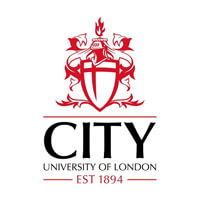fees waived
Finance, BSc (Hons)
City, University of London, United Kingdom
Subject ranking
UK / ARWU 2024 5th
UK / Times 2025 5th
UK / CUG 2024 13th
Costs
food & rentS$25.1K / year
Entry requirements
Scholarships
Limited quantity
Information
Code
Intakes
Website (External)
Programmes
Information
Duration
2028
The BSc (Hons) Finance degree at Bayes Business School, part of City, University of London, provides a rigorous foundation in finance, covering core areas like corporate finance, asset pricing, and international finance. Students build essential skills through mandatory modules in the first two years, including banking, financial accounting, and econometrics, followed by electives in year three such as mergers, acquisitions, and risk management. The program emphasizes practical application, with opportunities for paid work placements, study abroad at partner universities like Bocconi, and career-focused modules to enhance employability.Assessment methods include coursework, exams, and projects, with a mix varying by year (e.g., 70% written in year one). The degree is accredited by professional bodies such as the Association of Chartered Certified Accountants and the Institute of Chartered Accountants in England and Wales, preparing graduates for roles in equity research, corporate treasury, and investment banking.
The first year provides students with a strong foundation in all of the core areas of finance. Within these modules there is a focus on developing an understanding of relevant tools and then applying them to solving practical problems encountered by those working in the finance industry. Year one Core modules:
- Banking and financial institutions
- Business skills
- Finance and investment
- Introductory financial accounting
- Macroeconomics
- Mathematics for finance
- Microeconomics
- Statistics for finance
- Corporate finance and valuation
- Derivatives
- Financial econometrics
- Intermediate financial accounting
- Portfolio Theory & Investment Valuation
- Asset management
- International Banking
- Bank risk management
- Company Valuation
- Corporate Risk Manager
- Intermediate financial accounting 2
- Introduction to real estate investment
- Risk analysis and modelling
- Fundamentals of Management Accounting
- Introduction to Business Law
- Economics for Business 2
- Machine Learning for Finance
- Corporate restructuring
- Mergers and acquisitions
- Final year project
- Banking regulation
- Financial services regulation
- Monetary economics
- Fixed income portfolio management
- International finance
- Advanced financial accounting: Theory and practice
- Asset liability management
- Bank strategy and management
- Corporate social responsibility
- Emerging markets
- Financial engineering
- Real estate finance and funding
- Business forecasting
- General insurance
- Strategy for Business

